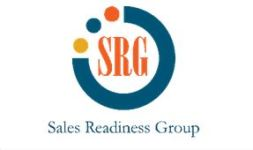ATD Blog
How a Global Crisis Helped Create a Better Learning Experience for Sellers
Tue Aug 24 2021

With in-person, instructor-led training off the table for more than a year, companies innovated and leveraged technology to deliver sales training to their remote sales teams.
The onset of the COVID-19 pandemic sidelined most training initiatives; however, companies realized that sales training was an even higher priority because it was more difficult to connect with customers and sales representatives were limited to remote selling.
Many companies adopted virtual instructor-led training sessions (VILT) to replace in-person training sessions. This transition was supported by learners who had become increasingly comfortable with virtual technology (for example, Zoom and Microsoft Teams).
In many cases, the content wasn’t optimized for virtual delivery, which led to too much facilitator-led learning and lower learner engagement (in other words, it felt more like a webinar than an interactive training session). To address this issue, courses needed to be optimized to increase engagement opportunities (polls, chats, and discussions) and use breakout rooms for smaller group exercises and role-plays.
While this was a good short-term fix to replace traditional classroom learning, it wasn’t until I experienced the power of collaborative learning that I realized we could create a better learning experience leveraging technology.
My personal experience involved working directly with a global industrial client to create a collaborative learning experience that included:
Micro video lessons. Bite-sized video lessons on a 24/7 accessible platform
Real-world application. Completion of online missions and exercises focused on skill application
Peer-to-peer interaction. Participants’ feedback and comments on missions and exercises and sharing of their own techniques and best practices
Weekly live online cohort sessions. Facilitated sessions focused on skill application that used participant-generated examples from the online platform
Gamification. Real-time leaderboards with badges awarded for each skill area
Certification. Receipt of Credly badge upon course completion
While we had great success with this approach with one of our leading technology clients who had already adopted this collaborative learning experience, I was less certain this would transfer to other industries. I discovered, though, that participants embraced this change and did a better job of applying the skills than in a traditional classroom setting.
My sense is that the improvement in skill application was because the self-paced learning allowed participants to think through how they would apply the skills they were learning in real-world selling situations through the missions and exercises. For example, participants learned new skills on managing objections then applied the techniques to objections they encounter in real-world selling situations. This resulted in an insightful peer-to-peer discussion board and provided great examples we could build on in the weekly live online cohort sessions.
While we are seeing a migration back to the traditional classroom as the COVID-19 pandemic eases, I am a firm believer that leveraging collaborative learning can create a better, more cost-effective way to train sales professionals.

